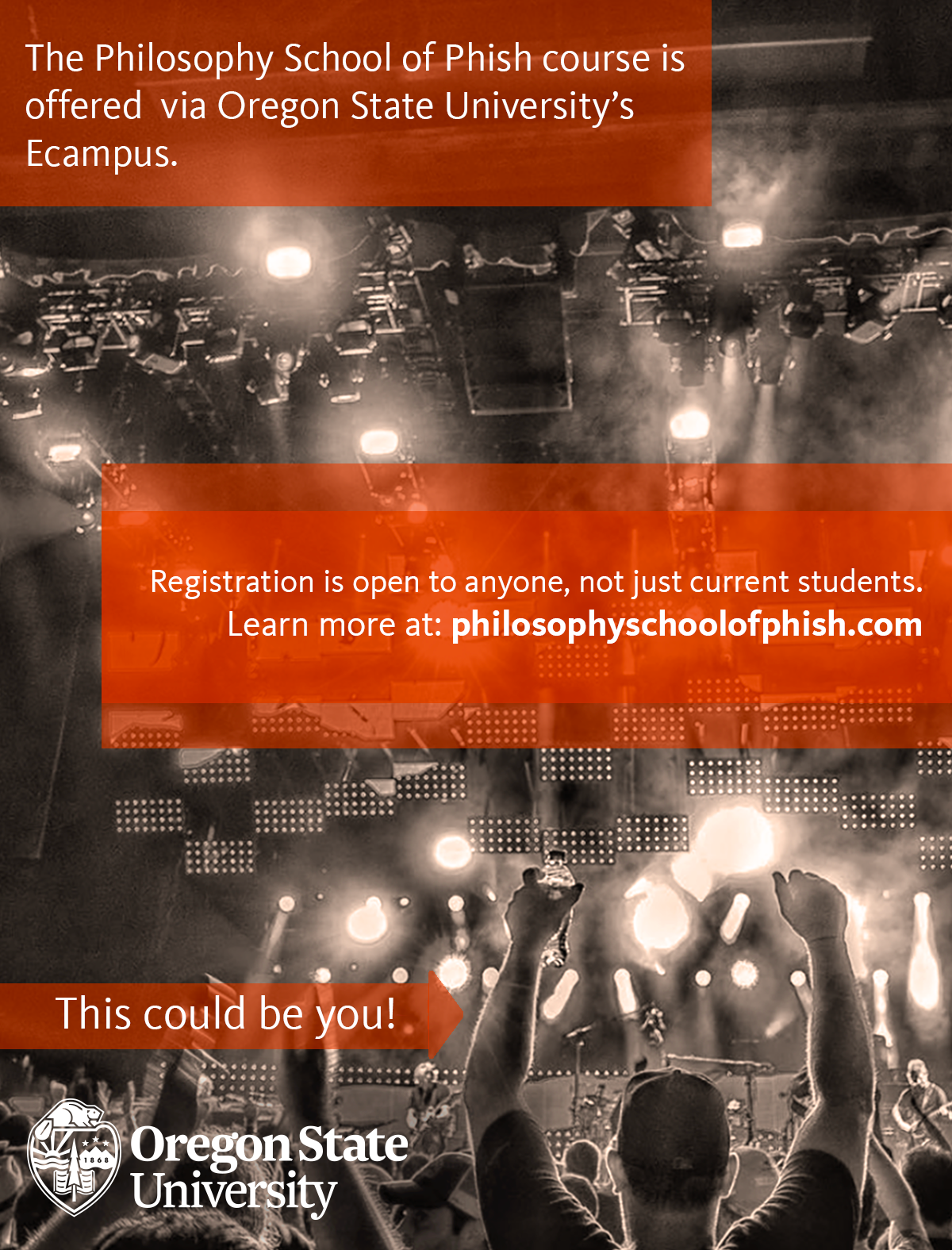REGISTRATION NOW OPEN FOR SUMMER PHILOSOPHY SCHOOL OF PHISH ONLINE COURSE AT OREGON STATE UNIVERSITY
The Philosophy School of Phish has been offering “chalk dust without the torture” at Oregon State University since 2014. Registration is open for this summer’s online course.
This summer’s class features an extensively redesigned course, offering new weekly podcasts, interviews with course authors, and a reorganized syllabus with updated readings and assignments.
Enroll now, as space is limited. Class begins June 24th! (Note: You do not have to be a current OSU student to take the course.)

Course Description
Through their music and live performances, the improvisational rock band Phish engages with ideas that are central to the history of philosophy. For example, their lyrics, holiday “gags,” interviews, and festivals exemplify imaginative, conceptual investigation through artistic expression. This course will use Phish’s concerts as case studies for exploring the philosophy of art and music. Students will study canonical theories about art and its meaning, from ancient to modern times.
Assignments will address questions such as:
What is beauty? What emotions does art provoke? What is the role of music in a meaningful life? What is the relationship between music and politics?Comments
You must be logged in to post a comment.

 The Mockingbird Foundation
The Mockingbird Foundation